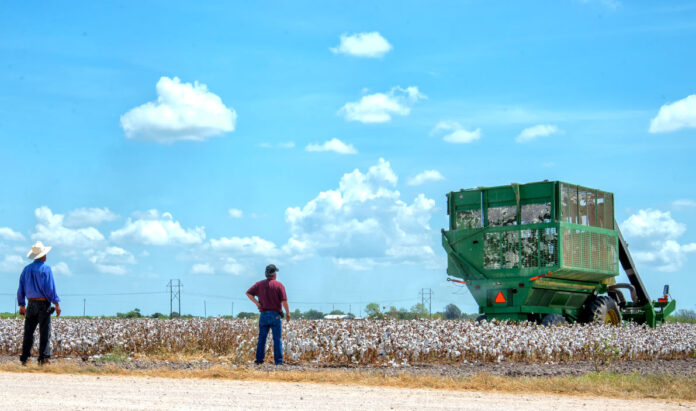HARLINGEN — Unless you’re a dedicated food label reader, you probably don’t know that cottonseed oil is a common ingredient in salad dressings and mayonnaise.
Or that the oil is used extensively for frying in the snack food and restaurant industries.
Where it’s not popular, at least these days, is with the U.S. Department of Agriculture. Secretary of Agriculture Tom Vilsack said this month that USDA didn’t have the authority under the 2014 Farm Bill to designate cottonseed as an “other oilseed” instead of a byproduct of cotton processing.
That may not seem like much of a distinction, but it’s a very big deal to cotton growers in the Valley and elsewhere.
The reason is simple.
If cottonseed oil is designated an oilseed, cotton growers will be eligible for federal programs that could help farmers in the event of catastrophic weather, or provide protection from losses due to commodity price drops. Canola oil and flax seed oil producers already have that safety net.
Without those federal guarantees, and with cotton prices bottoming out below 60 cents a pound, some growers are worried they won’t be able to obtain financing to plant this spring.
“The cotton industry is now confronting yet another potential disaster,” said U.S. Rep. Filemon Vela, D-Brownsville, in a recent statement. “U.S. cotton acres in 2015 were at their lowest level since 1983, representing a 42 percent decrease since the high set in 2011.
“I am currently involved in leading an effort amongst members of Congress requesting that USDA Secretary Tom Vilsack use his authority to designate cottonseed as an oilseed. Labeling cottonseed as an oilseed will allow farmers that produce cottonseed to be eligible for the same farm bill resources as other oilseed farmers,” said Vela, a member of the House Committee on Agriculture.
Cottonseed is not why farmers grow the crop. The most valuable part of the plant is the silky-soft fiber used for textiles to make clothing. The seeds are separated from the cotton fibers during the process of releasing the cotton fiber. The seeds are then processed to extract the oil.
The USDA’s Vilsack has his interpretation of his limits, but Texas lawmakers like Vela and U.S. Rep. Mike Conaway, R-Midland, believe he does have authority to rule cottonseed an oilseed. Conaway is chairman of the House ag committee.
“I respectfully disagree with your conclusion and assure you that your authority to designate cottonseed as an ‘other oilseed’ stands on firm legal ground,” Conaway said in a letter to Vilsack this month.
There’s a lot at stake in the Valley and Texas over a decision on the cottonseed issue. Agriculture, according to an economic study released in 2011, means $19.2 billion annually to Texas and $1.6 billion to the Valley. In the state, cotton is the No. 2 crop behind beef production.
In the Valley, it’s No. 1.
Jeff Nunley of Victoria is executive director of the South Texas Cotton and Grain Association. With prices for cotton down significantly, he says Vilsack not only has the authority to act on cottonseed oil but it’s critical for the future of American cotton growers to do it quickly.
For the rest of this story and many other EXTRAS, go to our premium site, www.MyValleyStar.com.
Subscribe to it for only $6.99 per month or purchase a print subscription and receive the online version free, which includes an electronic version of the full newspaper and extra photo galleries, links and other information you can’t find anywhere else.




